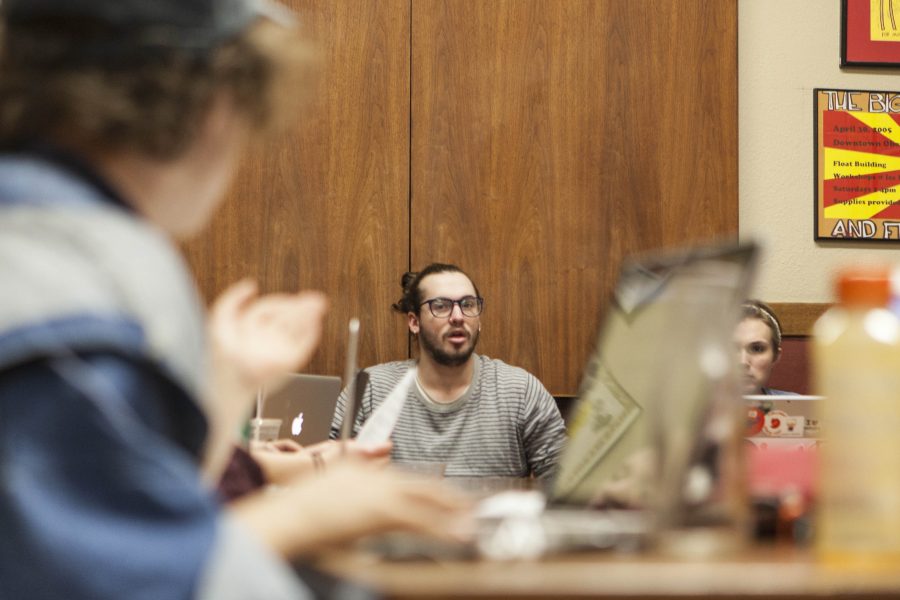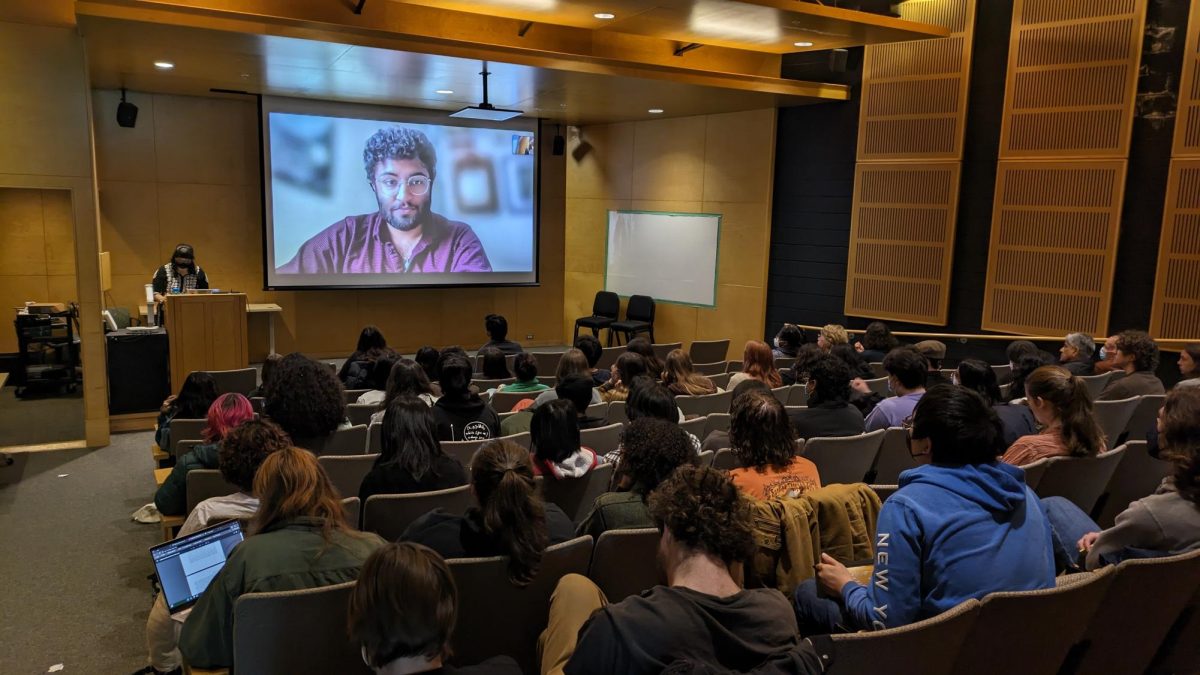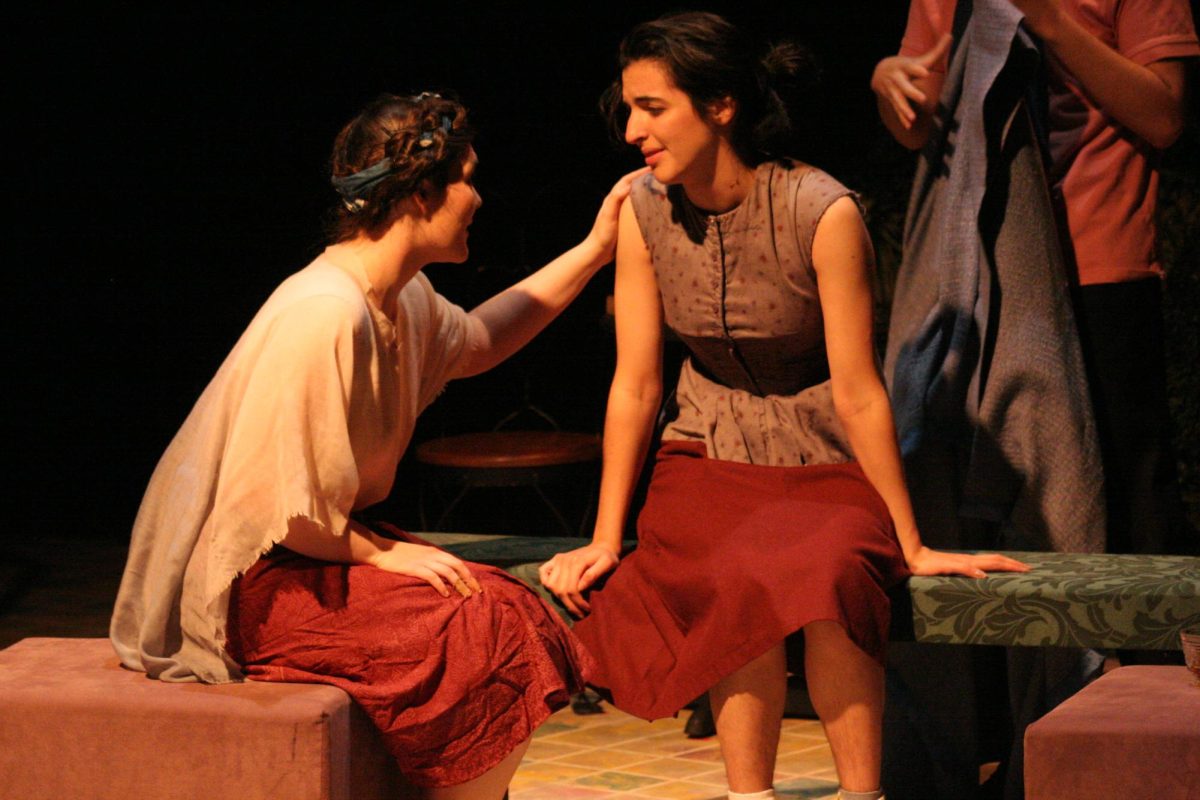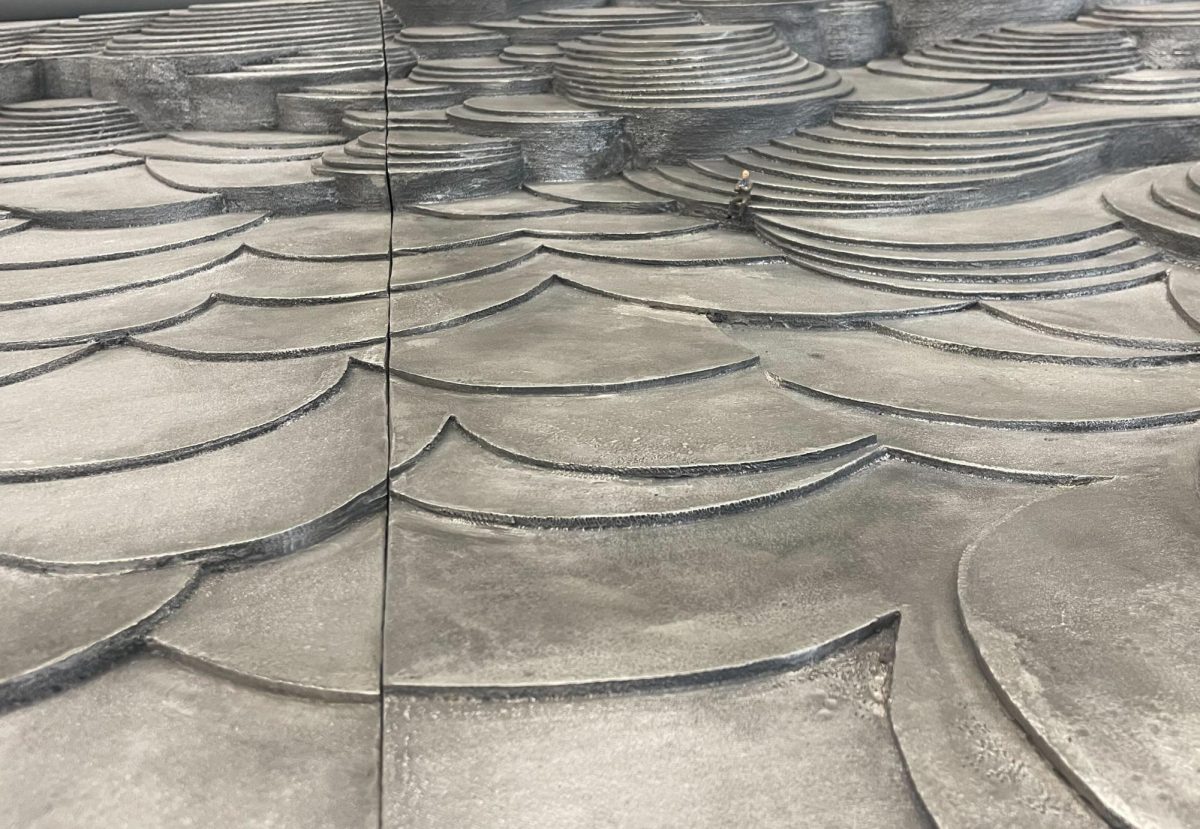Trustees to Investigate Adding Student Rep
Photo by Bryan Rubin, Photo editor
Student Senator and College junior Josh Koller speaks at Sunday’s Student Senate plenary meeting. The Board of Trustees agreed to create a task force to begin the search for a student representative to sit on its board, an effort Senate has long pushed for.
March 10, 2017
After months of pushing from student senators and activists, the Board of Trustees agreed to create a task force that will investigate adding student representatives to the board.
The breakthrough results from a proposal senators sent the board last Wednesday asking for the creation of a task force. The board then held its executive session Friday afternoon, after which senators received email confirmation that their proposal had been accepted — a drastic change from the seven-month waiting period Senate had to endure after their previous proposal in May 2016, which asked outright that the board allow students into its sessions and received a non-response from the board.
Several senators speculated that the revised phrasing of the proposal, and the support from Dean of Students Meredith Raimondo and the student body, convinced the trustees to accept the proposal.
“I think we owe a lot of it to the students who came out on [Thursday] to stand in solidarity, as well as the administrators who have been advocating with for us behind the scenes for a number of weeks now and to the success of the retreat,” said College sophomore and Student Senate Associate Liaison Meg Parker. “I think the organizing of the retreat as well as the actual retreat served as an experiment for how student-board relations could go, and I really think everyone came out of the mini-retreat with a better understanding of one another and the work that the other does.”
Raimondo agreed, highlighting how the improved relationship between the board and senators could have affected the proposal’s reception.
“My sense is that the board and Student Senate have been engaged in productive, ongoing conversation for over a year,” Raimondo said. “In my view, it is not that this proposal was received differently, but that by working together and building relationships, the board and Senate were able to take this next step together.”
Although details of the task force still need to be worked out, the timeline outlined in the Senate proposal states that decisions about who will be sitting on the task force could be made by spring break and meetings could occur as early as April 3.
“If the structure of the proposal is followed — which said the task force should begin convening within a month of the acceptance date — I would guess within the next week or so we should know what composition is going to look like and start hearing some chatter about who is going to sit on that task force,” said College junior and Student Senator Josh Koller.
The proposal recommended the task force be comprised of two students, two trustees, two administrators and two faculty members so it would “mirror the composition of many effective governance structures within Oberlin College” and “include all campus constituencies in the investigative process.”
But both senators and Raimondo added during Sunday plenary that this structure and who is appointing these members is potentially up for debate as part of an ongoing conversation of what the task force should look like. One of the senators interested in renegotiating the task force structure is College junior and Student Senator Jesse Docter.
“If we have leeway to renegotiate the proposal I think that would be good, because I think it was kind of a rushed document and I think it would be better structured as a 50-50 trustee-student committee,” Docter said. “I still haven’t heard the rationale for what faculty and administrators will add to the committee. … I think that faculty often tend to follow the expertise in the room in a way that students don’t, and I know a lot of faculty committees where non-voting administrators who aren’t even voting completely control the direction of the vote because faculty don’t feel like they have enough information to go against it.”
Raimondo spoke about her excitement regarding the creation of the task force.
“I enthusiastically support the establishment of a task force to determine the best way to ensure student experience is communicated effectively to the board,” said Raimondo in an email to the Review. “I know Senate has been thinking deeply about the responsibilities and roles of board members as it has studied the question of a student representative, and I’m confident the task force will help identify the best way to ensure meaningful engagement of students with the board.”
Although this comes across as a victory for Senate and much of the student body, College junior and Student Senate Liaison Thobeka Mnisi added that there is a long way to go before a student is actually put on the board.
“I think the board appreciated that we demonstrated an understanding of how they function, and although this is a victory for us, it was a very small ask compared to what we really want,” Mnisi said. “We were only asking for a conversation; I imagine it’d be difficult for the board to come up with a good reason to refuse an investigation that doesn’t even ask them to endorse any particular outcome at this point.”
For senators who have pushed for student representatives and increased board transparency for years, the response gives them hope for the future of trustee-student relations.
“Sometimes I think about how [next year] is — hopefully — going to be my last year here, and while it’s a little bit of a bummer, it’s also not,” Koller said. “Because that’s not even the point; this is for the entire future of the student body here and I think it has the power to be a really long-lasting positive force for students.”















